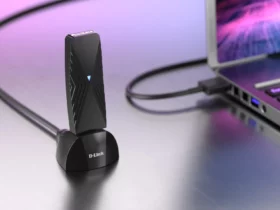Marco Fanuli, Security Engineer Team Leader of Check Point Research Italy presents the 5 fundamental points of cyber security for a safe holiday
With summer travels and the desire to “disconnect” that this year will take over, Check Point Research (CPR) wants to share five cybersecurity tips to avoid falling into cyber traps.
Secondo Check Point Research Cybercriminals are particularly fond of these times, during which people have fun and lose their attention. So let’s see advice from Check Point Research shares the following cybersecurity tips for people ready to go on vacation.

Marco Fanuli, Security Engineer Team Leader di Check Point Italia
Check Point Research Italia’s 5 cyber tips for a safe holiday
Here are the company’s recommendations for keeping your devices safe, but first, let’s see the CEO’s considerations regarding cyber security;
As stated by Marco Fanuli;
This summer the trips are destined to break all records, despite everything. We expect hackers to want to take advantage of this freedom and lightheartedness after constant lockdowns. Everyone should have cybersecurity in mind as they travel over the next few months. The basic precautions we have put together can help people have a quiet and safe summer. Unfortunately, we are living in the era of a cyber pandemic, so anything can happen. The first rule is never let your guard down

- Avoid public Wi-Fi. Free wi-fi access is tempting, but it can also pose a serious security threat. It is possible for hackers to wait in bars or airports, for travelers to connect to public wi-fi, so that they can target the naïve. Avoid unencrypted wi-fi networks: a security protocol must always be requested before connecting to the web. Be very careful when using free wi-fi – and, if you have to use it, avoid accessing personal accounts or sensitive data.
- you do beware of the curious. The person sitting next to you on the plane or while you wait for boarding may have bad intentions. Someone can look over your shoulder as you enter your credit card information or while you register on social media. Get a screen privacy protector, which helps hide your device from prying eyes.
- Double check the websites you book travel on. These attacks can occur even before the trip begins – make sure the website for the various bookings is trustworthy. Scammers love to mimic authentic sites and pretend to offer luxury vacations or discounted trips in order to steal your personal information. If a deal sounds too good to be true, it probably is. Before moving on, do a thorough research on the company offering the deal. Use a credit card for payments rather than your debit card. Credit cards often have fraud protections in case you fall victim to a cyber crime; while with a debit card, your money will likely lose.
- Be wary of ATMs. Avoid withdrawing money from any ATM. Hackers, especially in tourist areas, have been known to inject credit card credential theft systems into standalone ATMs. Use the bank’s official ATMs, preferably those located in the lobby of your trusted bank.
- Don’t share your location. Sharing your location with your friends on social media is fun, but it’s also dangerous. Avoid announcing the dates and locations of your holidays on social media and in the “out of office”. This is not only an invitation to all “offline” criminals, it also provides clues for hackers to stage cyber attacks.
If you want to continue to know the latest news from the hardware world, keep following us. Greetings from TechGameWorld.com.















Leave a Reply
View Comments